Experience opens understanding of the Buddha’s teaching, the Dharma, in a different way than simply hearing many teachings. Here, in this audio recording from a September 2018 teaching in Gomde, Austria, Phakchok Rinpoche shares advice on gaining experience.
Experience Opens Understanding: Time to Digest
 Regular, daily practice of the Dharma brings the teachings into our personal experience. And this can actually take time; we proceed gradually. When we simply listen to the teachings, we do gain benefit because of the teacher’s experience.
Regular, daily practice of the Dharma brings the teachings into our personal experience. And this can actually take time; we proceed gradually. When we simply listen to the teachings, we do gain benefit because of the teacher’s experience.
But, if we only hear the teaching, and have no personal experience of working with the practice, it can feel rather dry. Instead, when we also put into practice what we hear, and then personally experience some changes, we gain a much deeper understanding.
Experience Opens Understanding: Don’t Rush
 It is very important not to rush when we start learning the Dharma. When we study mundane subjects in school we often try to read as much as we can and choose a good instructor. And usually, if we apply ourselves in this way, we can become an expert. But in the case of Dharma, those aren’t the only elements.
It is very important not to rush when we start learning the Dharma. When we study mundane subjects in school we often try to read as much as we can and choose a good instructor. And usually, if we apply ourselves in this way, we can become an expert. But in the case of Dharma, those aren’t the only elements.
Of course, we should receive teachings from a good teacher–but it really comes down to how we put those teachings into practice. And practice doesn’t just mean sitting in meditation on a cushion, Rinpoche says. In addition to meditation, we gain experience by practicing mind-training. Additionally, we build the proper conditions for our experience by accumulating merit and by confessing our previous mistakes. Experience opens understanding when we take the time to collect all the favorable spiritual conditions.
Beginning Buddhist Practice
So how do we begin Buddhist practice? We can first listen to explanations from a qualified teacher, and take time to reflect on what we have heard–trying to understand a little more. Then, after a lot of studies we then gradually encourage ourselves to try some of the practices. That summarizes one approach. Phakchok Rinpoche advises students with this inclination to enter the pathway of the Nine Yanas.
Another method is to approach the practice with a degree of trust–we think this seems right–and we begin practicing what we hear right away. As we do that, we take time to reflect on our own experiences. When we follow this method, we observe our own experience and notice any changes and improvements right away. Rinpoche calls this method the Path of Meditation.
Practitioners often talk about obstacles to their practice. And these obstacles arise from various conditions–sometimes they are external, and sometimes they arise internally. So, as we begin to practice, we need to know our own ground–what is our own situation. For example, we may not be aware of how much other people influence us–or we may be somewhat aware, but we don’t think seriously about it. Because we are so interdependent, we benefit from having a good, supportive community.
Experience Opens Understanding: Daily Check-in Exercise
 Rinpoche asks us all to check our own situation on a daily basis. What ground are we starting from when we sit to practice? Are we beginning from a “happy ground” or an “unhappy ground”? Or are we coming from a very neutral ground?
Rinpoche asks us all to check our own situation on a daily basis. What ground are we starting from when we sit to practice? Are we beginning from a “happy ground” or an “unhappy ground”? Or are we coming from a very neutral ground?
Are we feeling inspired to practice–or are we discouraged–or somewhere in the middle? Begin by checking yourself this way. Take a few minutes to really consider this.
Next, whatever state or ground we identify–look at that. And then, we can reflect a bit–where did that ground come from? Did someone, something, or some message influence or affect our ground? Are we really in control of our ground or mental state–check carefully!
This is what we call spiritual practice! We call this process meditation. And in modern terminology, we could describe it as self-healing. But whatever term we use, by actually doing this practice, we can see for ourselves how experience opens understanding.
So, if you practice this exercise regularly, what new understanding do you take away?




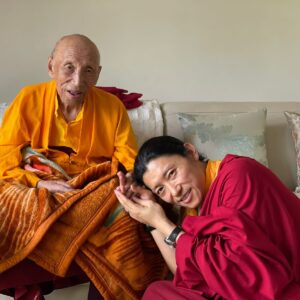
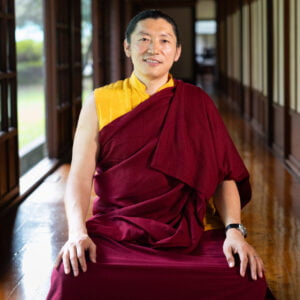
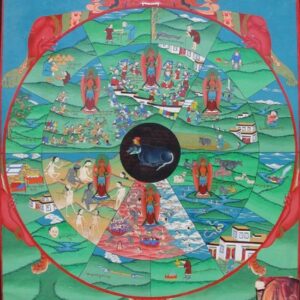
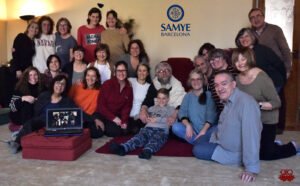
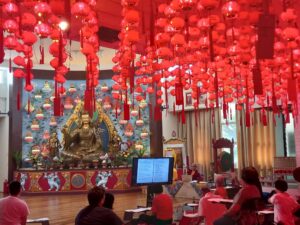
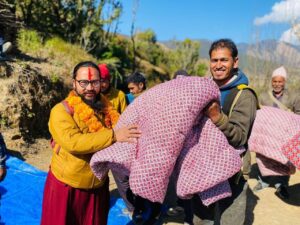
Responses